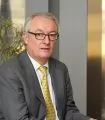The European Commission has published a consultation on proposed changes to its 2011 Note on the handling of duplicate marketing authorisations. The Consultation Document explains that the objective of the consultation is to seek views on the impact of duplicate authorisations of biological medicinal products on the availability of biosimilars to healthcare professionals and patients.
Duplicate authorisations
Under Article 82 of Regulation (EC) 726/2004, only one authorisation may be granted to an applicant for a specific medicinal product. However, there are exceptions to this, including on the grounds of “objective verifiable reasons relating to public health regarding the availability of medicinal products“. This ground has been interpreted in the 2011 Note to mean that the original marketing authorisation holder for a product can obtain a duplicate in order to launch a “first generic” of that product (known as an “authorised generic” in the USA) because “the first entry of a generic to the market has an impact on availability as it usually increases accessibility“. “Accessibility” is also affected by price, and the introduction of copy products invariably reduces price and increases patient access to the medicine in question. To date, requests for duplicates on the basis that they will be the “first generic” of the reference product have generally been accepted without detailed analysis of the reasons why this will increase availability to patients.
The consultation
The consultation seeks to amend this provision by adding that all requests for a duplicate will need to be “properly substantiated and based on sound evidence“. The footnote explains that this has been triggered as a result of experience from biological medicines: “On the basis of the experience gained since the publication of the notice, the first introduction of a generic product by the holder of a biological medicinal product may not improve availability. However, a case-by-case assessment of the impact on the availability of the product will be undertaken, on the basis of evidence provided by the applicant, with due consideration of the impact of the duplicate marketing authorisation on the availability of biosimilars to health care professionals and patients“.
While the consultation does not set out what “experience” is being referred to, the originator’s generic can claim to be a “bio-identical” of the branded product and so be legitimately interchanged with it. In contrast, biosimilars are, by definition, not identical, and due to recommendations in many Member States that biological products are prescribed with a specific brand name, the introduction of a biosimilar does not have the same impact on the market for that product as occurs with chemical based copies, and does not necessarily increase materially patient availability/access.
Although the amendment is stated to relate to biological medicines, the changes suggested go further, and appear to apply whether or not the application relates to a biological medicine. It is not clear if this is the Commission’s aim, or whether the proposal will be clarified as a result of comments received through the consultation.
Comments are requested on the “general principles that underly [the] possible clarifications“, rather than on the specific wording suggested. The results of the consultation will help the Commission decide whether to clarify the current wording of the 2011 Note. In the interim, requests for duplicate marketing authorisation applications “in this specific case” (which appears to refer to biological medicinal products only) will be assessed on a case-by-case basis.
Comments should be provided by 10 September 2018.
The content of this article is intended to provide a general guide to the subject matter. Specialist advice should be sought about your specific circumstances.

